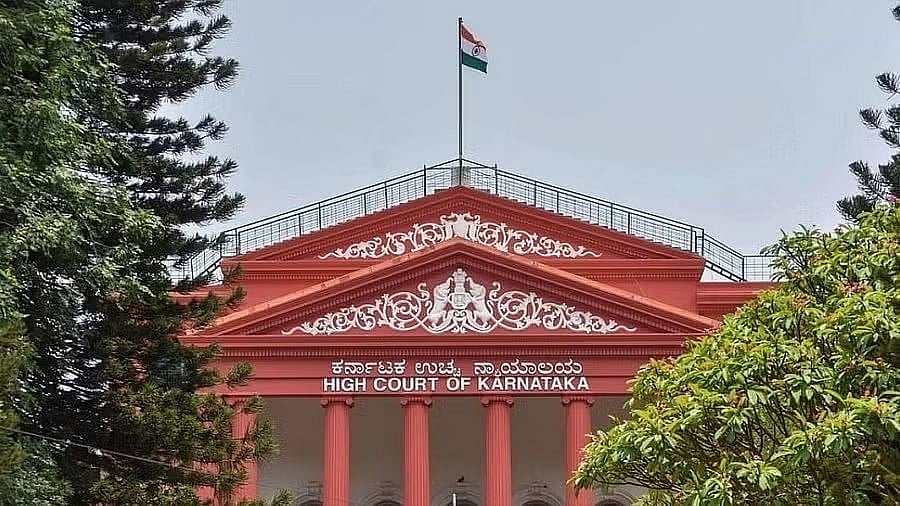
Karnataka High Court
Credit: DH File Photo
The Karnataka High Court on Thursday set aside the state government’s decision to withdraw 43 cases filed in various police stations.
On October 15, 2024, a government order (GO) directed public prosecutors to exercise discretion under CrPC Section 321 to withdraw cases filed against influential personalities such as ex-ministers, MLAs, presidents and other persons holding high positions.
“It is declared that the Order shall stand non est from the inception. The consequences in law shall follow,” a division bench comprising Chief Justice N V Anjaria and Justice K V Aravind ruled, while allowing a PIL petition.
The GO directed public prosecutors to withdraw pending cases against political leaders such as C T Ravi, M P Renukacharya, M C Sudhakar, Karnataka Rakshana Vedike president T A Narayana Gowda, Raitha Sangha president Kuruburu Shanthakumar as well as the suspects in the April 2022 Hubballi riots case.
In his PIL petition, Bengaluru-based advocate Girish Bharadwaj stated that the cases were proposed to be withdrawn from the prosecution pursuant to the recommendation by the sub-committee of the cabinet meetings.
The petition claimed that the discretion to withdraw a case from prosecution lies with the public prosecutor and it also to be independently examined on a case-to-case basis. Such withdrawals can be affected with consent of the court, the petition said.
The petitioner stated that in the instant list of 43 cases, the competent authorities and the departments, including Department of Prosecutions and Government Litigations as well as from Police Department, had given opinion against the withdrawal.
On the other hand, the government contended that the power under CrPC section 321 is reserved for the executive government to withdraw criminal cases on broader grounds of public policy, maintenance of law and order, public peace and harmony, and “social and political consideration.”
The Advocate General, appearing for the government, submitted that the cabinet has legitimately exercised its powers and executive discretion to either accept or diverge from departmental recommendation on a policy basis.
The division bench noted that the government order in its nature impinges upon the discretion to be exercised by the public prosecutors and it takes away the room for the public prosecutor to apply his mind. The bench observed that if there is a political consideration in withdrawal of cases under CrPC Section 321, it is the worst kind of abuse of powers as the larger public interest suffers.
“When the Government Order complained of in this public interest petition takes away the area of independent judgment by the public prosecutor, whittles down his discretion in the matter of withdrawal of cases to be acted upon under Section 321 and prevents directly or indirectly, and to the extent whatever, the Order could hardly sustain. If allowed to be sustained, it would work contrary to the object and spirit of Section 321 CrPC, discounting rule of law and working in its ultimate analysis, against public interest,” the court said.
